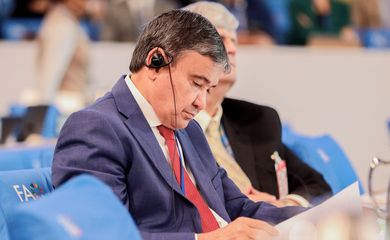Lula thanks Qatar for hosting Global Alliance Against Hunger Summit

On Tuesday (Jan. 7), President Luiz Inácio Lula da Silva spoke by phone with Qatar's Emir, Shaikh Tamim Bin Hamad Al Thani. According to the Planalto presidential palace, the leaders discussed the bilateral relationship between the two countries, which is celebrating its 50th anniversary this year.

Lula also confirmed that the Emir would visit Brazil this year, reciprocating the president's visit to Qatar in November 2023. Shaikh Tamim Bin Hamad Al Thani had been in Rio de Janeiro last November for the G20 Summit, hosted by the Brazilian government.
During the phone call, Lula congratulated Qatar for its support of the Global Alliance against Hunger and Poverty and its decision to host the Alliance's first Summit in November. The event will take place in parallel with the United Nations World Summit on Social Development in Doha, Qatar's capital.
Launched at the G20 Summit on the Brazilian government's initiative, the Alliance has been formally joined by 82 countries, two major regional blocs—the European Union and the African Union—24 international organizations, nine financial institutions, and 31 philanthropic and non-governmental organizations.
Adherence, which began in July and remains open, is formalized through a declaration outlining general and specific commitments, aligned with the specific priorities and conditions of each signatory.
Among the actions is "Sprints 2030," an initiative aimed at eradicating hunger and extreme poverty through large-scale policies and programs.
The Global Alliance aims to reach 500 million people with cash transfer programs in low- and lower-middle-income countries by 2030. It also seeks to expand quality school meals to 150 million more children in countries with endemic child poverty and hunger, and raise billions in credit and donations through multilateral development banks to support these and other initiatives.
The Alliance will have its own governance structure linked to the G20, but not limited to its member countries. The governance system is expected to be operational by mid-2025, with Brazil providing temporary support for essential functions until then.






